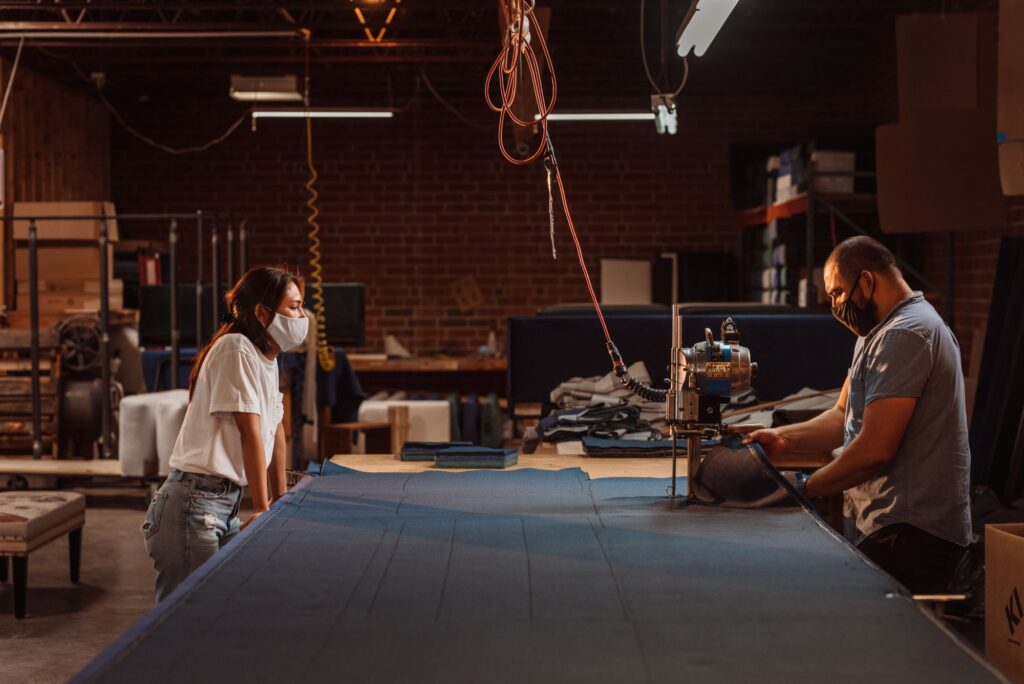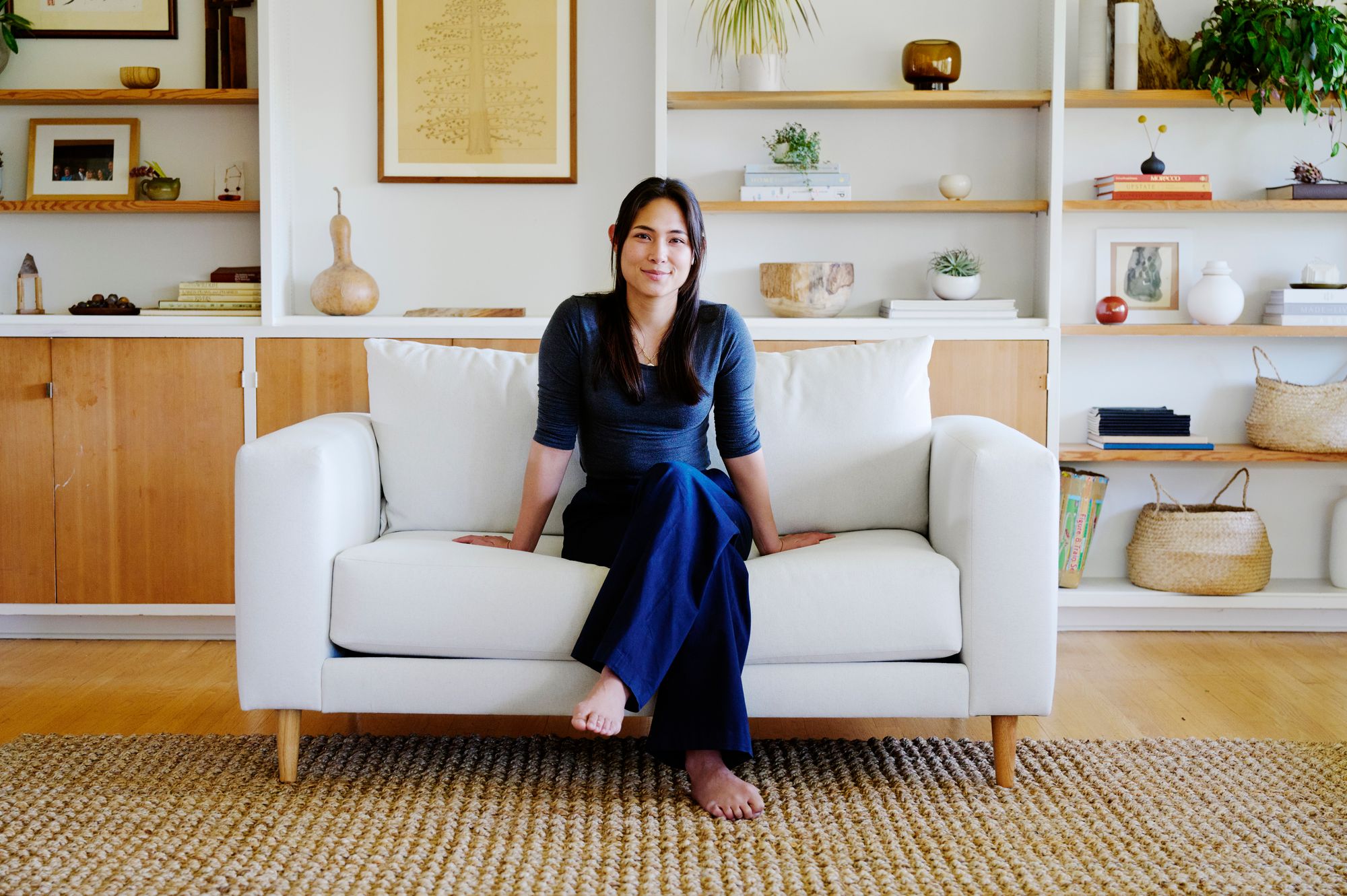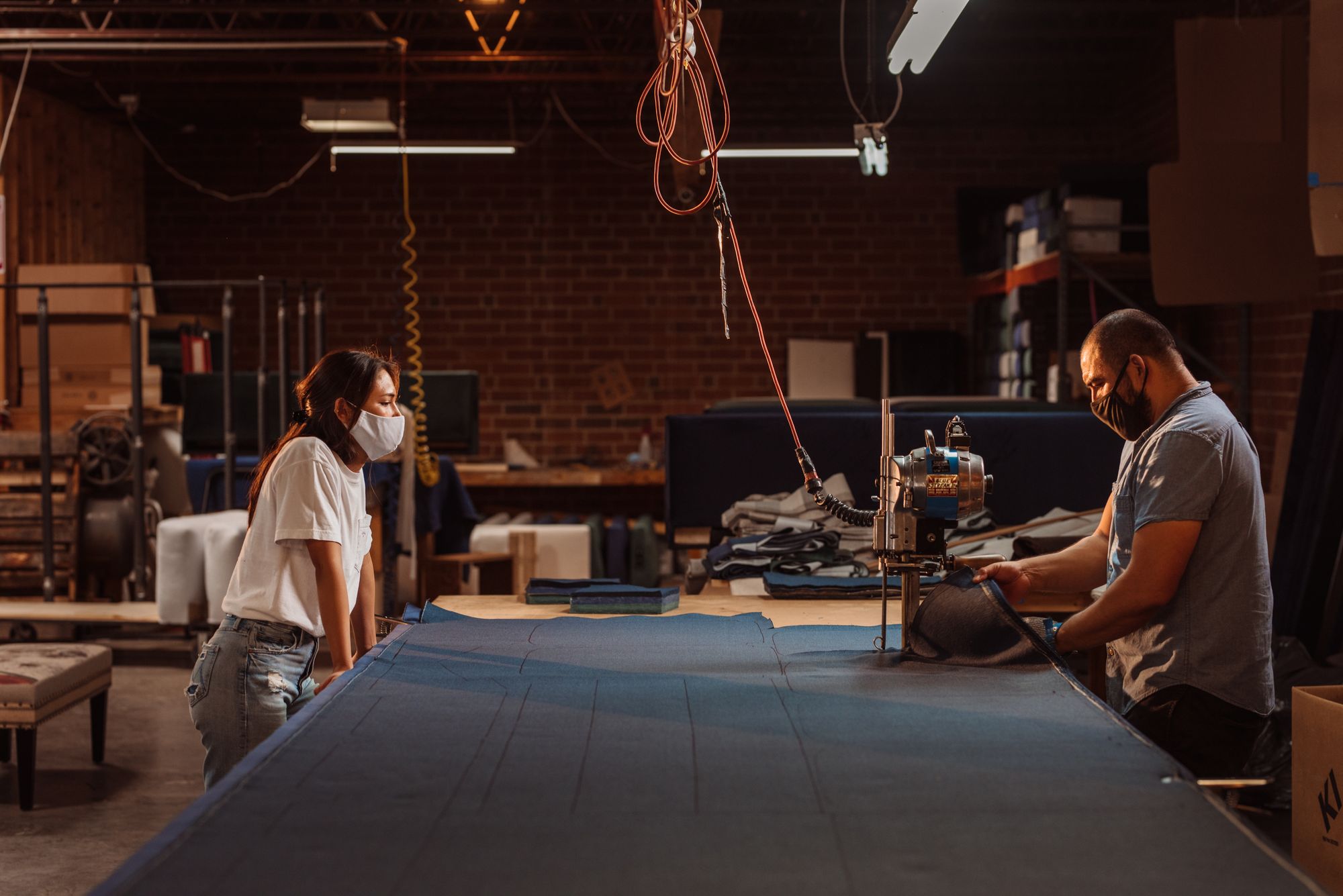Inside Sabai Design’s Sustainability Approach to Building a Business

It’s hard to overstate the importance of furniture in our lives.
We literally live our life on furniture, yet often don’t realize the impact our chosen furnishings have on the planet in terms of chemicals, greenhouse gasses, and material waste.
Phantila Phataraprasit learned about sustainability early in life and wanted to build the kind of sustainable brand she’d be proud to shop at, so she decided to do something about it and co-founded Sabai Design, a sustainable furniture company.
Featuring insights from Buffer’s Small Business, Big Lessons podcast episode seven, and the accompanying unpublished interview, Phantila shared how Sabai got started, what she and her team do to embed sustainability into every business practice, and how she builds trust with the Sabai community.

Starting sustainable
Phantila had a unique experience that drove her toward sustainability: she lived at an eco-lodge that her parents started and ran in Thailand.
That experience showed her how critical sustainability really is not just for business, but for preserving the natural beauty of our world. As a result, Phantila often says she is willing to prioritize sustainability above all else, being willing to pay more and even forgo aesthetic taste in the name of being sustainable.
However, this approach was no longer enough. She valued sustainability, but she also wanted to live the life of her choosing, not dictated by the small supply of “sustainable” items out there. And one area, in particular, stuck out, both from a sustainability and design perspective: furniture.
“Not only do a ton of valuable resources go into making these products but at the same time, every year, over nine million tons of furniture waste ends up in landfills,” said Phantila. “At the same time, a lot of furniture products include toxic materials and chemicals that off-gas and end up in our bloodstreams are also dangerous to people generally.”
An entrepreneur at heart, Phantila wanted to start a sustainable furniture company not just to solve her own problem but also make it easier for others to live more sustainable lives. However, she knew that she had to focus on more than just material sustainability.
“The whole mission behind the company is to think about sustainability as comprehensively as possible,” said Phantila.
In specific, she co-founded Sabai Design with four key outcomes in mind:
Affordability: Sustainability had often been used as a reason to charge higher prices, but Phantila wanted to build a business where items were fairly priced and affordable.
Convenience: Sustainability should not be at the expense of convenience, so the team worked to ensure it was easy to buy and receive their products.
Aesthetic: Products should have a clear aesthetic that is appealing to people versus using sustainability to justify limited aesthetics.
Sustainability: Not just sustainability in the product itself, but the entire business and product life cycle.
“We realized that for most people, if the pieces or products aren't also aesthetically pleasing, affordable, convenient, then sustainability doesn't really …read more
Source:: Buffer Blog










